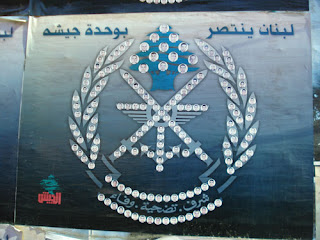On March 24, 1980, Archbishop Oscar Romero of San Salvador, El Salador, was gunned down before his congregation while celebrating mass, by a right-wing militant (allegedly a member of a group called the White Warrior Union). Two weeks before he told a journalist the following:
I have often been threatened with death. Nevertheless, as a Christian, I do not believe in death without resurrection. If they kill me, I shall arise in the Salvadoran people. Martyrdom is a grace of God that I do not believe I deserve. But if God accepts the sacrifice of my life, let my blood be a seed of freedom. Let my death be for the liberation of my people.
Some twenty years before that a Columbian priest Camilo Torres organized a United Front to link together peasants, slum dwellers, workers, and professionals to work for social change and joined the guerrilla Army of National Liberation. After meeting fierce opposition from Church instances, Torres finally renounced his priesthood and was quoted saying:
I took off my cassock to be more truly a piest, (…) the duty of every Catholic is to be a revolutionary, the duty of every revolutionary is to make the revolution, (…) the catholic who is not a revolutionary is living in mortal sin.
On February 16, 1966, in an army ambush and counterattack, Torres was shot and killed.
I have been working on what was called Liberation Theologians for some time now and refrained from writing anything on the subject. I don’t want to bore you with all the theoretical considerations this entails when comparing with a movement like Hizbullah, but I wish to make two remarks here:
1- What I find amazing is how an age old considered-conservative establishment such as the Christian Catholic Church was turned and lived for a couple of years as a socially revolutionary institution. Interesting theoretical debates were taking place from the Vatican to Latin America. From its initial organizational spread, ‘red bishops’ as they were called were collecting victory after victory and although the conservative turn taken by Jean Paul two (we-love-you) has severely undermined the clerical foundation of the movement, they still are a powerful force to consider. In the case of Hizbullah, the various schools in Iraq and Iran have hosted the dialectical elaboration of a new class of clerics, and then the backing that emerged from the Iranian revolution has all contributed to this explosion of socially-oriented activism.
2- The State institutional setting in Latin America differ greatly from the one present in the Middle East. In the former, nationalist movements bear more on the construction of imagined communities, whereas in the Middle East, Islamic idioms are much more salient. And in parallel Latin America has a legal system directly installed by the secular tradition whereas in the Middle East, the secular tradition had to navigate its way through an age-old legal Islamic tradition that was sometimes badly integrated and sometimes totally compromised. This means then that Liberation Theologians and Islamic movements work in completely different institutional environment and have totally different agendas in their relation with the State, their conceptualization of secularism, nationalism, the role of religion (a word that needs to be defined).
2- Cultural idioms follow paths set by their institutional background when expressing a social reality. See for example how the idea of resurrection in the first citation is linked to a victorious act in turn assumed by the people at large. This articulation of victory through self-annihilation for a social purpose is dictated by a particular ethical stand though framed through institutional age-old elaboration: In his case the person is “being Christian”, in the other he is “being Muslim”. The term Christian or Muslim is void of signification except through the particular historical reality that empowers these terms in the militant Act, action (الفعل), that is political par excellence. Being then is a social process.
But more on this later.
 Instead of a tree (as used by Hizbullah), the army seems to use its logo as a kind of schema to portray some of its combatants that died during the recent battles.
Instead of a tree (as used by Hizbullah), the army seems to use its logo as a kind of schema to portray some of its combatants that died during the recent battles.

